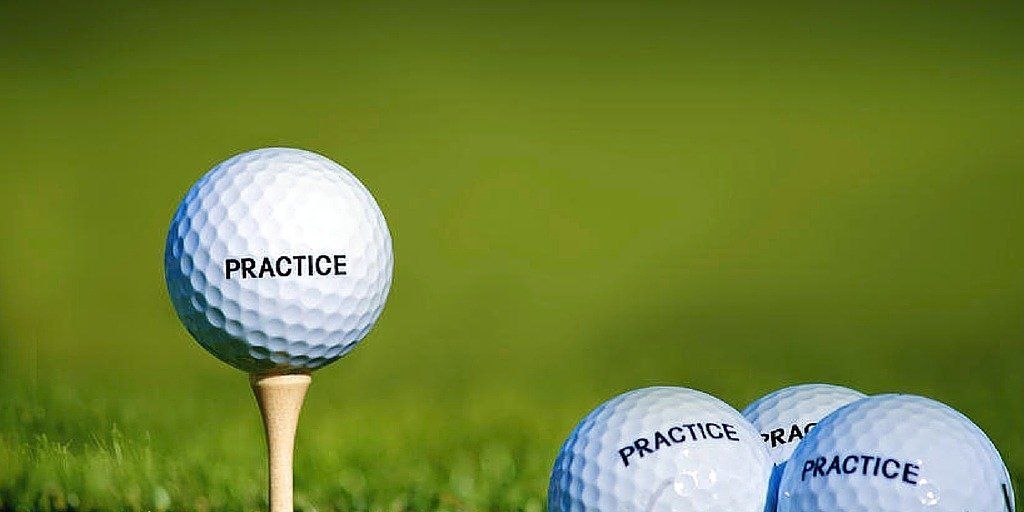
This is a guest post by Matthew Cooke from Game Like Training
Practice, practice, practice!
You’ll often hear this phrase when it comes to explaining how we improve a certain skill set, such as learning how to hit a golf ball or becoming a better outside shooter in basketball. Almost every teacher we’ve had growing up instilled in us that practice makes us permanently better.
Some have suggested that practice makes perfect, but now we know through research that this is not always the case. For the last decade there have been many studies that look into how the brain actually learns, and how we can acquire new skills that will allow us to perform better and reach our personal goals.
Unfortunately, these findings are just now making their way into golf. I can’t help but think that golfers would have enjoyed the game more, and participated more as a whole if we had gotten the word out sooner. Nonetheless, we are now finding out some of the key elements of how the brain learns and how skills are developed. It’s an exciting time!
In this article I’d like to discuss some key findings we have found through research, and how they can apply to your next practice session.
Moving Away From Repetitive Practice
If you go to any driving range, you’ll likely see a hoard of golfers stuck in a repetitive cycle. They are beating balls with the same club over and over again, and building a false sense of confidence by seeing their golf ball fly high and straight every time.
Here’s the problem. This is nothing like a real round of golf. You’ll never get an opportunity to hit your 7-iron 10 times before the actual shot that counts.
This kind of repetitive practice is beneficial in the very beginning stages of learning a skill. However, you should try to get away from it quickly at the first signs of competency. The research backs this up pretty heavily.
Rather than hitting 20 balls with the same club to the same target, try reducing that number to 5, and then changing your target. When your proficiency increases, then you can move on to hitting one shot at one target, and keep switching. This is more like a real game.
20 minutes Can Be Better Than Two Hours
A common misconception for golfers, especially the young golfer, is that the more you practice the better you get. “Practice for 10 hours a day” is a comment I have heard many times, and the problem with this is that it promotes a repetitive type of practice structure once again.
The brain does not learn as efficiently when it is stimulated for this long. Instead, it is better to space your learning (practice) trials out.
For example, practice for 20-30 minutes and then take a break. Reflect on the practice session, plan the next session, or call a friend. Anything to take a player away for a short amount of time will work wonders.
Stimulate Synaptogenesis, Not Your Blood Flow
I’m going to throw a technical word at you, but it’s important. It’s called synaptogenesis, and it’s one of the keys to understanding how the brain learns.
For simplicity, synaptogenesis is where one cell joins another cell, allowing neurons to travel through, forming patterns that can dictate motor skills. This process happens as a learner is in an environment that is challenging yet appropriate, and as close to the real game as possible.
From this, patterns are formed, which serve as the skill level one resides at. The more appropriate the practice, the more synaptogenesis happens, and the better a golfer becomes.
A common mistake golfers make is heading to the practice range and going through the motions. Taking a little time beforehand to plan and construct a practice environment that is stimulating enough to extrapolate the synaptogenesis process will aid long-term learning and lower scores.
I hope this provides a basic understanding of how the brain actually learns, and what you can do in your practice sessions to make sure you are actually improving your golf skills. Remember, just hitting balls and going through the motions is not the answer!
Matthew Cooke is a golf coach, and co-founder of Game Like Training where he shares coaching philosophies and tools that help golfers and coaches train more efficiently - www.gameliketraininggolf.com
[/author]
We care about the protection of your data Read our Privacy Policy